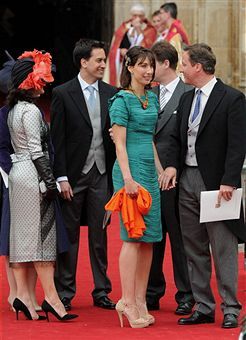 This is an age of ideas, not of ideology. That is the thesis of Amol Rajan’s
enthralling overview of the intellectual trends in contemporary
British politics, published in today’s Independent.
This is an age of ideas, not of ideology. That is the thesis of Amol Rajan’s
enthralling overview of the intellectual trends in contemporary
British politics, published in today’s Independent.
As part of the piece, Rajan has interviewed Maurice Glasman, who gives a far clearer account of ‘Blue Labour’ than he did during his recent comments to the Italian press. Communities must be organised to resist the caprices of capital and the dead-hand of the state.
Resist is probably the wrong word because the aim appears to be, in Philip Blond’s celebrated phrase, the ‘recapitalisation of the poor’, which implies some form of empowerment. Rajan notes that Glasman holds a lot in common with Philip Blond’s Red Toryism and the Big Society. All hope to limit the state to allow ordinary people a greater say in their running of their local services and communities, which in turn will insulate them from overbearing corporate interests. In other words, communities and other local interests enter the market for service provision, for instance.
Each has adopted a position on the centre ground and share obvious links with Barack Obama’s creed of ‘Organising for America’, designed to forge national unity after a supposedly divisive era. Politicians, of course, adopt these inoffensive attitudes to win elections – the consensus dictates that depleted core votes mean that campaigns can only be won from the centre. With this in mind, the ideas are marketed to decontaminate polluted political brands. Thus, the nasty Tories alighted on the Big Society and, to a lesser extent, Red Toryism. And now ‘Red Ed’ is becoming enamoured of Glasman’s ‘Blue Labour’.
But, the centre ground is a small plot and it may soon become crammed with colours and stances that blur into one. Strategists have recognised the need for adjectives that decontaminate, but may have overlooked the importance of adjectives that differentiate.






Comments